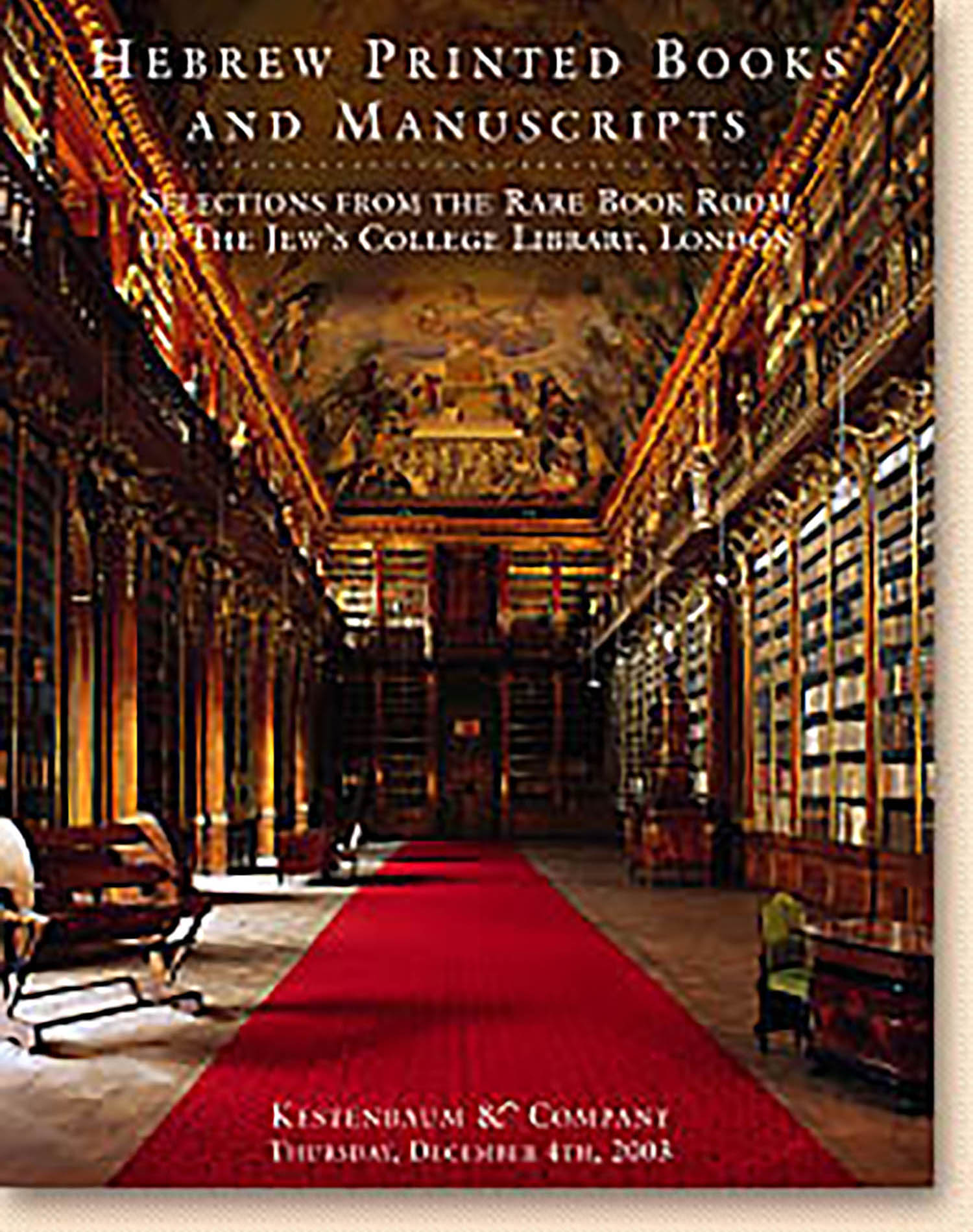Midrash Tehilim Rabatha. [Midrashic commentary to the Book of Psalms] * MIDRASH SHMUEL [Midrashic commentary to the Book of Samuel] * Midrash Mishlei [Midrashic commentary to the Book of Proverbs]

AUCTION 21 |
Thursday, December 04th,
2003 at 1:00
Kestenbaum & Company Holds Inaugural Auction of Hebrew Printed Books & Manuscripts at Their New Galleries
Lot 175
(MIDRASH).
Midrash Tehilim Rabatha. [Midrashic commentary to the Book of Psalms] * MIDRASH SHMUEL [Midrashic commentary to the Book of Samuel] * Midrash Mishlei [Midrashic commentary to the Book of Proverbs]
Venice: Daniel Bomberg 1546
Est: $800 - $1,200
PRICE REALIZED $700
The Midrash Tehilim was most likely composed towards the end of the tenth-century, probably in Southern Italy. It is chiefly a compilation of sayings relating to the verses of the Psalms scattered throughout the Agadah, but it also contains some original material.
Midrash Tehilim is followed by R. Mattathias Ha-Yizhari’s commentary to the 119th psalm, Perush ha-Alpha Beta (58d-66b). Ha-Yizhari (Spain, 14th-15th century) was descended from a Narbonne family which emigrated to Aragon after the expulsion from France in 1306. This is the only work of the Spanish philosopher to be published. He left in manuscript a commentary on Avoth. Concerning Ha-Yizhari, see EJ, Vol.11, cols. 1129-1130.
The Midrash Mishlei is more in the form of an Aggadic commentary to the Book and contains sayings, parables, proverbs and short homiletic interpretations on each chapter. Its date of composition is approximately the same as that of Midrash Tehilim. M. Waxman, A History of Jewish Literature I, p. 143.
The middle segment of Midrash Shmuel has been excised from our copy.
